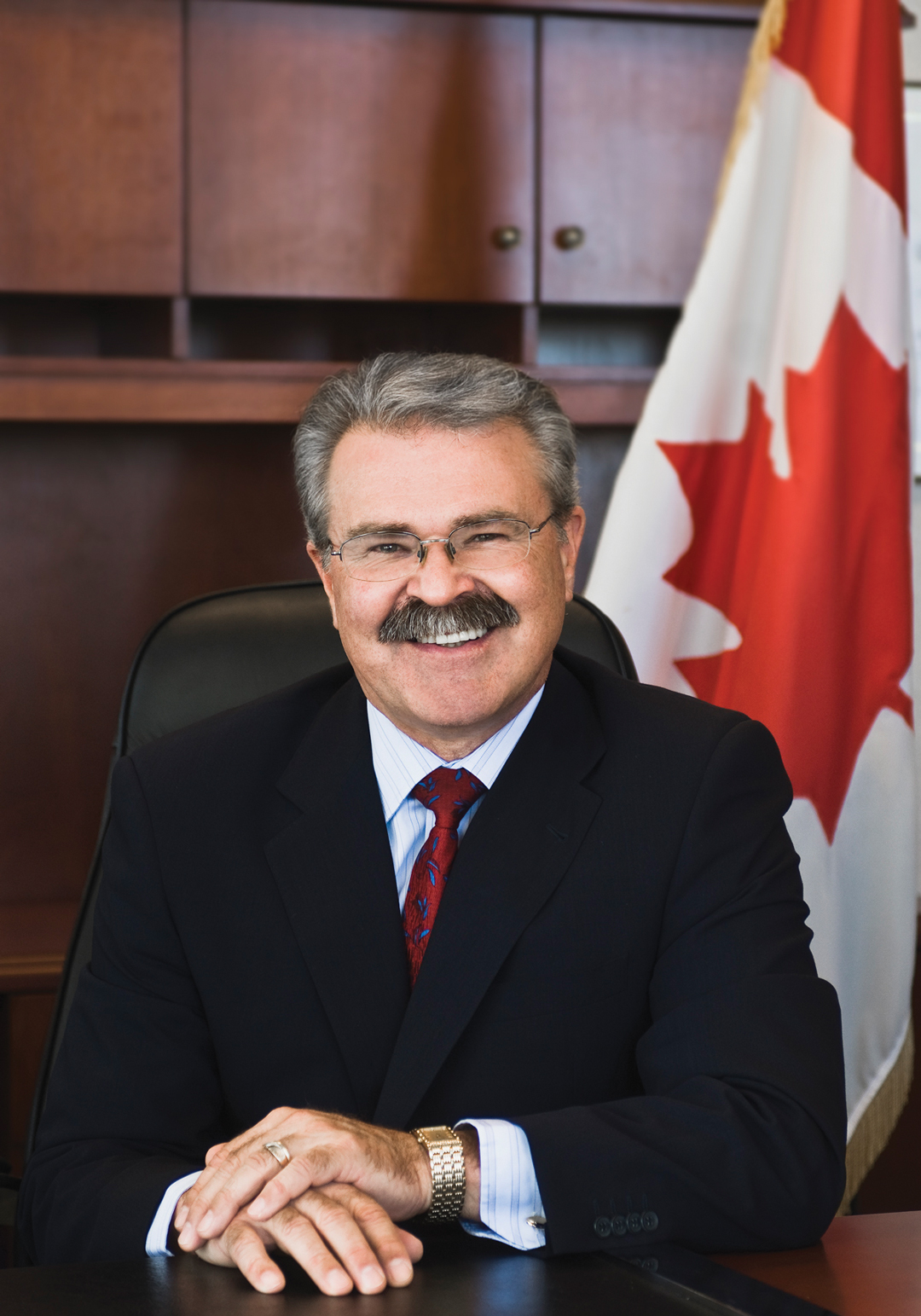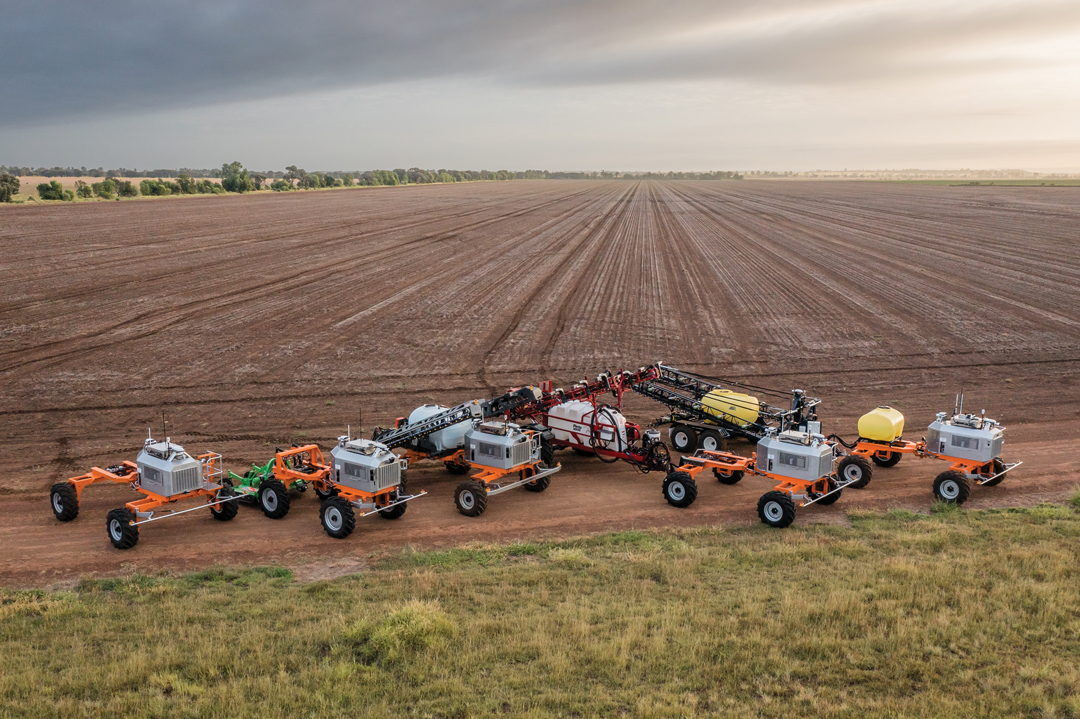KEEP DOING THE WORK
AMBITIOUS FORMER MINISTER INDUCTED INTO THE CANADIAN AGRICULTURAL HALL OF FAME
BY IAN DOIG WITH FILES FROM GEOFF GEDDES • PHOTO COURTESY OF THE CONSERVATIVE PARTY OF CANADA
Known for his direct, sometimes controversial political style, as one of Canada’s longest-serving agriculture ministers, Gerry Ritz was also respected for his giant work ethic and dogged determination to better the industry. Member of Parliament for Battlefords-Lloydminster from 1997 to 2017, Ritz served under the Reform Party, Canadian Alliance and Conservative Party of Canada. A farmer and construction contractor born in the town of Delisle, SK, in 1951, he now lives in North Battleford.
Agriculture is a key driver and benefactor of the many international free trade agreements Ritz helped craft. He worked on establishing the Canada– EU Comprehensive Economic and Trade Agreement (CETA) and played an integral part in developing what became the Comprehensive and Progressive Agreement for Trans-Pacific Partnership, signed in 2018. Ritz also championed the Growing Forward initiative, which empowered the ag industry to innovate and capitalize on emerging market opportunities.
In fighting for fair and open market access for farmers and exporters and against unscientific trade restrictions, he worked to restore or expand market access for cattle and beef products and oversaw the dissolution of the Canadian Wheat Board (CWB) monopoly.
Ritz worked to build the livestock sector’s reputation with development of world-class traceability and animal health systems that underpin Canada’s reputation for producing safe, high-quality food. He also co-authored a pilot project that led to the creation of comprehensive livestock insurance programs for the Western provinces.
AWC, Alberta Barley and the Canadian Cattlemen’s Association nominated Ritz as an inductee to the Canadian Agricultural Hall of Fame, receiving numerous letters of support from additional industry groups. GrainsWest recently asked Ritz about his accomplishments.
GrainsWest: You oversaw the introduction of marketing freedom for wheat and barley farmers. Have the results unfolded as you expected?
Gerry Ritz: The sky didn’t fall. Other than a couple of glitches that we fully expected, since then, volume has been added to on-farm storage, elevators have grown up across Canada. [Existing facilities] have
expanded their rail lines and we’ve seen a lot of upgrades in port capacity, as well. All these things add to the bottom line and stability of agriculture.
Warburtons [the largest baked goods company in the U.K.] was held up by the Wheat Board [as an example of] why it always has to be No. 1 Red. When I made the announcement we were withdrawing the mandatory nature of the CWB, one of the first calls I got was from one of the brothers at Warburtons. He said, ‘Are you serious about doing this?’ I said, ‘Yes, I’m hoping that we can maintain your business.’ ‘We’re going to expand it! They’d never let us buy anything but No. 1 Red. We want utility wheats that we can contract and put them into a new pastry line.’ Now they’re contracting. One guy in Saskatchewan has got 4,000 acres with them. On a trip, I stopped at their mill and sampled these pastries. They’re pretty darn good.
GW: How did the state of market access change during your time in office?
GR: [We sat down] with industry and said, ‘What do we need to do?’ We started opening those markets and getting free and unfettered access for Canadian goods—beef, barley, canola—in Colombia, South Korea, then Japan, China and others. Success breeds success. We could set the stage at the political level, then industry connected the dots. We saw our agricultural trade go up 70 per cent—tickling $60 billion when I left office.
GW: You led work on numerous international trade agreements including establishing work on CETA and the TPP. How did that market building change Canadian agriculture?
GR: The bottom line for sure. We’ve got way too many [agricultural trade goods] in the American basket. We need to diversify. That was the whole point of pushing to get TPP ratified sooner rather than later. It’s important to be in there first and fast and move forward on the deal.
GW: During your eight years as minister, what drove the expansion of agricultural trade? What will ensure continued growth?
GR: We have the product. The quality is second to none. We have clean air, clean land, clean water and we have the capacity. We have an innovative agricultural sector. We assess now what’s going to be marketable.
I often said when we first started this long walk toward those numbers in trade, you have to sell what your customer wants, not what you have. A 16-ounce T-bone looks really nice on a meat rack in Calgary, but even we don’t eat that anymore. So, how do you disassemble a 1,300-pound carcass to get the maximum value but still deliver the product in a way that Japan, Mexico and other countries want?
GW: How important was developing personal relationships in completing trade deals?
GR: You build up rapport with your counterparts around the world and it makes quite a difference. And I was fortunate to have a prime minister who understood what we could do with agriculture to open the door. We dealt with everybody in these other countries, not just ag. We’d ask for round tables with other ministers and get them because they all knew they needed and wanted Canadian product. We spent less money more effectively and with faster turnaround time than you ever used to get.
GW: You took a major role in legislative work aimed at improving rail transport of grain. That drove a review of the Canada Transportation Act, leading to the Emerson Report, which provided the blueprint for the Liberal government’s Transport 2030 plans. How does it feel to see that legislation come to pass?
GR: It was very gratifying to see it come to play. They got most of it right, but there’s a couple of things I would’ve done differently. It’s data that’s the big thing. What underscores all of this is Quorum Corporation [compiling] a week by week, line by line assessment of what’s where and why and is it actually meeting the target.
GW: What is the key to maintaining Canada’s global reputation as a producer of high-quality farm products?
GR: Keep doing the work. You have to do the grunt work with the ministerial representatives at the bureaucratic level in every country you’re working on. You have to keep connecting the dots making sure the Australians aren’t outhustling you on beef, the Chileans aren’t outhustling you on pork, the Mexicans haven’t got some new crop.
GW: What does being inducted into the Canadian Agricultural Hall of Fame mean to you?
GR: The thing I’m most proud of is getting all aspects of any given industry in that supply chain sitting around a table talking about what needs to be done. We got the industry working harmoniously, which had never been done.
GW: What does your post-politics life look like?
GR: I’ve been consulting, speaking. I’m very active on Twitter, so I still get hate mail and death threats, which makes you feel alive. There’s never a day goes by I don’t think about politics and watch what’s happening and say, ‘You’re missing the boat here, buddy.’ That will never change.”







Comments